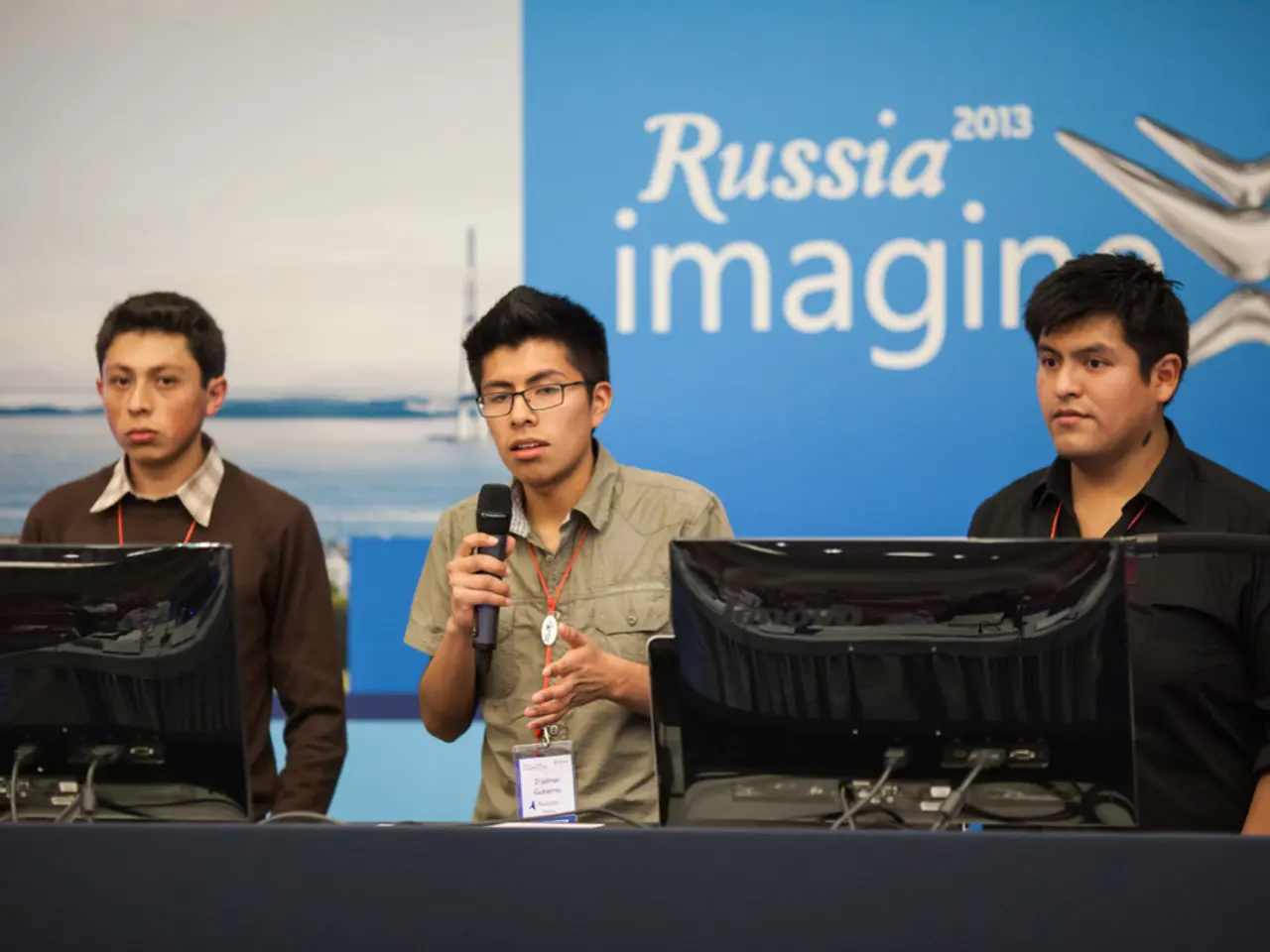Russian Language Proposal by Ukraine's Ombudsman for a Ban
In the heart of Eastern Europe, Ukraine is currently considering a significant change in its linguistic landscape. The Ukrainian government, led by Language Ombudswoman Olena Ivanovskaya, is advocating for the exclusion of the Russian language from the list of minority languages requiring official protection and support in Kyiv and other regions.
This move comes amid ongoing debates about the status of the Russian language in Ukraine. Ukrainian authorities, including civil society and religious councils such as the All-Ukrainian Council of Churches, strongly oppose granting Russian any special linguistic or institutional status. This firm rejection of Russian influence is a push to consolidate Ukrainian language and identity.
The proposed change, if implemented, would further prioritise the Ukrainian language in public life and governance, potentially reducing the institutional presence of Russian. This could deepen cultural and political separation from Russia, reinforcing national sovereignty narratives, especially amid ongoing conflict.
However, the impact on the Russian-speaking population within Ukraine, historically comprising about 30%, is a concern. The shift towards tighter linguistic policies and less public support for Russian language rights could increase tensions with the Russian government, which continues to use the status of the Russian language as a political and security issue in its relations with Kyiv.
The European Charter for Regional or Minority Languages, adopted in 1992 in Strasbourg, aims to protect and promote the languages of national minorities in Europe. The Ukrainian law defines a list of languages considered regional or minority languages on the territory of the country, which includes Russian, Belarusian, Bulgarian, Hungarian, Gagauz, and Jewish, among others.
Russian authorities have repeatedly stated that the Russian language is discriminated against in Ukraine. The Russian Foreign Ministry spokeswoman, Maria Zakharova, accused Olena Ivanovskaya of violating the European Charter for Regional or Minority Languages. The Ministry of Foreign Affairs called the law on exclusive rights of the Ukrainian language "forced Ukrainization."
It is important to note that the exact details of the changes to the list of protected languages in Kyiv are not specified in this statement. Article 10 of the Ukrainian Constitution guarantees the free development, use, and protection of Russian and other languages of national minorities. All state officials, servants, representatives of trade, services, education, medicine, culture, etc., in Ukraine must know and use Ukrainian, according to the law.
This policy is likely to shape the linguistic landscape of Kyiv and Ukraine more broadly in the coming years, aligning with efforts to strengthen Ukrainian identity and sovereignty. The future implications of this potential change are significant and multifaceted, reflecting a strategic choice by Ukraine to resist Russian demands for official recognition of their language in Ukraine.
- Amidst ongoing war-and-conflicts and politics, Ukraine's proposed exclusion of the Russian language from its list of minority languages requiring official protection could significantly change the policy-and-legislation concerning language rights, potentially aggravating general-news related to cultural and political tensions between Ukraine and Russia.
- The European Charter for Regional or Minority Languages, a product of early 1990s policy-and-legislation, has been the subject of recent debates due to the Ukrainian government's alleged violation of its principles, prompting general-news about war-and-conflicts and political tensions between Ukraine and Russia, particularly regarding the status of the Russian language.







